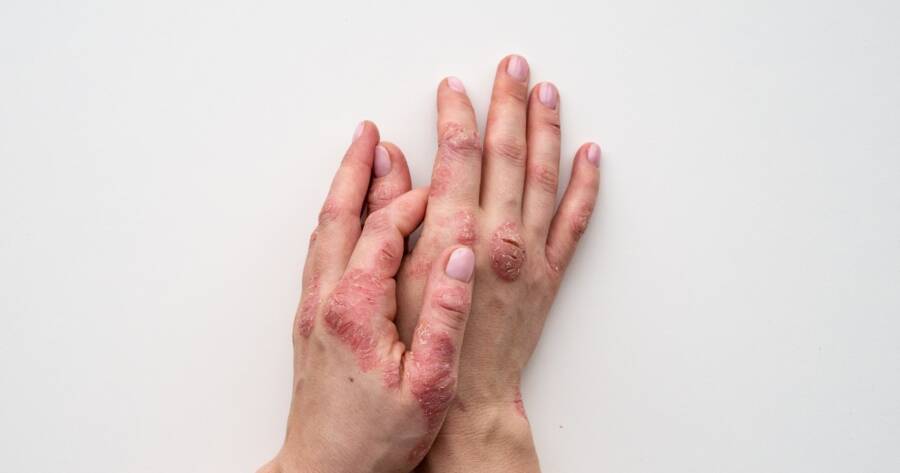If you’re dealing with psoriasis, then you’re not alone. This skin condition is something that affects 7.2 million Americans and nearly three percent of the world’s population are living with. Psoriasis is a chronic disease, so people must learn how to manage their symptoms and prevent outbreaks. Luckily, there are various treatments available for you to try out. You can search online to find out which option is best for you.
Before starting treatment, it’s important to make sure that you recognize the symptoms of psoriasis and not confuse it with other skin problems. An online search can show you what psoriasis commonly looks like on the body.
Here’s a rundown on psoriasis symptoms and possible treatments.
Symptoms of Psoriasis
So, what exactly is psoriasis? Mayo Clinic says it’s a skin disease that has no cure. It causes red, itchy, and scaly patches that can appear anywhere on the skin. More often than not, you’ll find it on the knees, elbows, and scalp.
There are some telltale signs that your skin is dealing with a psoriasis outbreak. The main symptoms are:
- Red patches of skin with silvery scales;
- Small scaling spots;
- Dry, cracked skin;
- Bleeding;
- Itching, burning, or soreness;
- Thickened, pitted, or ridged nails, and;
- Swollen and stiff joints.
It can be easy for people to mistake psoriasis for other skin conditions such as dandruff. Healthline says the difference is that dandruff is the formation of flakes due to dry skin. Whereas psoriasis is an autoimmune disease that causes dead skin cells to build up on the surface.
Another skin problem that’s closely related to psoriasis is eczema. According to WebMD, eczema causes severe itchiness that can make your skin bleed. Psoriasis can be itchy but it may also sting and burn. The two diseases also look different on the skin since psoriasis can appear thicker and more inflamed.
Types of Psoriasis
You might be surprised to know there are different types of psoriasis a doctor can diagnose you with. These types are defined by how it looks, where it appears and common it is among the population.
The National Psoriasis Foundation says there are five types of psoriasis. They are:
- Guttate Psoriasis: Small, round red spots caused by inflammation that often appears on the arms, legs, and torso.
- Pustular Psoriasis: White, painful bumps with pus that may be surrounded by inflamed or reddened skin. It can appear on certain parts of the body or cover most of the body.
- Plaque Psoriasis: It’s also the most common type that affects 80 percent of people living with psoriasis.
- Inverse Psoriasis: Inflamed deep red skin that is smooth and not scaly. It typically appears in skin folds. It can cause severe itching and pain.
- Erythrodermic Psoriasis: This is the rarest form of psoriasis that causes intense redness and shedding of skin layers in large sheets.
Treatments for Psoriasis
Topical Treatment
One of the most convenient forms of treatment for psoriasis is topical cream. It can be helpful for people living with mild to severe cases.
Mayo Clinic says corticosteroid ointments are recommended for sensitive areas and can be applied once a day during flare-ups. In more severe cases, your doctor might prescribe a stronger corticosteroid cream such as triamcinolone or clobetasol. Topical treatments that treat psoriasis can also be given in the form of shampoo, gel, or sprays.
The type of topical treatment you’re prescribed will depend on the severity of your condition and where it’s located.
Light Therapy
Something a doctor might recommend alone or in conjunction with medications is light therapy. This high tech method exposes the skin to controlled amounts of natural or artificial light. According to Mayo Clinic, repeated treatments are necessary to see results.
You don’t necessarily need to attend a clinic for light therapy. Brief natural sunlight exposure each day could be helpful. Just make sure to talk with your doctor beforehand to make sure it’s safe for your condition.
Oral or Injected Medications
For people who don’t see improvement in their psoriasis with other treatments, Mayo Clinic says that oral or injected medications may be an option.
For example, an injection of steroids (triamcinolone) may be helpful for those with small and persistent psoriasis patches. Alternatively, a retinoid pill could reduce the production of skin cells and help prevent psoriasis outbreaks from happening.
Natural Remedies
There are plenty of natural treatments that can be effective in treating psoriasis. Medical News Today says if psoriasis is something you will continuously be living with, you might want to explore some home remedies alongside a medical treatment.
Some natural remedies that could help treat symptoms of psoriasis include:
- Fish oil or omega-3 fats;
- Capsaicin;
- Probiotics;
- Curcumin;
- Aloe vera;
- Oregon grape;
- Moisturizers, and;
- Avoiding sugar and trans fats.
Learn More About Psoriasis by Searching Online
Psoriasis is an uncomfortable skin condition that can appear anywhere on the body. But with the right treatment and prevention methods, you can manage it and increase the time between outbreaks.
If you’re experiencing symptoms of psoriasis, make sure to see your doctor. They can recommend a course of treatment depending on the severity and area of your condition. You can also search online to discover ways to lessen the number of flare-ups you experience with this chronic condition.



